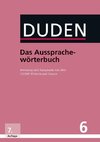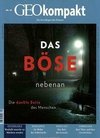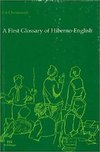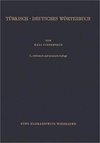
-
 Anglický jazyk
Anglický jazyk
History of Montenegro
Autor: Source: Wikipedia
Source: Wikipedia. Pages: 137. Chapters: World War II, Stephen UroS IV DuSan of Serbia, Chetniks, List of ancient tribes in Illyria, Republic of Venice, Duklja, Principality of Zeta, Siege of Castelnuovo, Vasojevici, Crown Prince Nicholas II of Montenegro,... Viac o knihe
Na objednávku
28.98 €
bežná cena: 32.20 €
O knihe
Source: Wikipedia. Pages: 137. Chapters: World War II, Stephen UroS IV DuSan of Serbia, Chetniks, List of ancient tribes in Illyria, Republic of Venice, Duklja, Principality of Zeta, Siege of Castelnuovo, Vasojevici, Crown Prince Nicholas II of Montenegro, Malësia, Illyrian Provinces, Anti-bureaucratic revolution, Kingdom of Montenegro, Arbitration Commission of the Peace Conference on the former Yugoslavia, Guvernadur, Ðurad I BalSic, Serb clans, Gubernadur, Albania during the Balkan Wars, State of Slovenes, Croats and Serbs, Principality of Montenegro, Demographic history of Montenegro, House of Vojislavljevic, Kingdom of Dalmatia, Croatian-Hungarian Settlement, Venetian Albania, Montenegrin Federalist Party, Vukolaj Radonjic, Ivan I Crnojevic, Republic of Montenegro, Treaty of Berlin, Stecci, Chronicle of the Priest of Duklja, ZelenaSi, List of rulers of Montenegro, Sava Kovacevic, List of Montenegrin consorts, Battle of Deçiq, Bombing of Podgorica in World War II, Battle of Grahovac, Christmas Uprising, Stanislav Radonjic, Zeta Banovina, Skanderbeg Crnojevic, Ballaios, Battle of Fundina, BalSa I of Zeta, Montenegrin-Ottoman War, House of BalSic, Serafino Mazzolini, Montenegrin perper, Montenegrin Border General Forces, Alexander Devine, Battle of Vucji Do, Pristine Detachment, Iskodra Corps, Taslica Detachment, Morinj camp, Hieromonk Makarije, Stanislav Vukolajev Radonjic, Bar massacre, ZAVNOCGB, London Conference of 1913, United Nations Security Council Resolution 1691, Montenegrin perun, Prince GrubeSa, Muhajir, History of the Jews in Montenegro, Triteuta, Lovcen Brigade, Serb National Guard of Kotor. Excerpt: World War I (WWI) or the First World War, formerly called the Great War, was a major war centred on Europe that began in the summer of 1914 and lasted until November 1918. It involved all of the world's great powers, assembled in two opposing alliances: the Allies (centred around the Triple Entente) and the Central Powers. More than 70 million military personnel, including 60 million Europeans, were mobilised in one of the largest wars in history. More than 9 million combatants were killed, largely because of great technological advances in firepower without corresponding advances in mobility. It was the second deadliest conflict in Western history. The assassination on 28 June 1914 of Archduke Franz Ferdinand of Austria, the heir to the throne of Austria-Hungary, was the proximate trigger of the war. Long-term causes, such as imperialistic foreign policies of the great powers of Europe, such as the German Empire, the Austro-Hungarian Empire, the Ottoman Empire, the Russian Empire, the British Empire, France, and Italy, played a major role. Ferdinand's assassination by a Yugoslav nationalist resulted in a Habsburg ultimatum against the Kingdom of Serbia. Several alliances formed over the past decades were invoked, so within weeks the major powers were at war; via their colonies, the conflict soon spread around the world. On 28 July, the conflict opened with the Austro-Hungarian invasion of Serbia, followed by the German invasion of Belgium, Luxembourg and France; and a Russian attack against Germany. After the German march on Paris was brought to a halt, the Western Front settled into a static battle of attrition with a trench line that changed little until 1917. In the East, the Russian army successfully fought against the Austro-Hungarian forces but was forced back by the German army. Additional fronts opened after the Ott...
- Vydavateľstvo: Books LLC, Reference Series
- Rok vydania: 2013
- Formát: Paperback
- Rozmer: 246 x 189 mm
- Jazyk: Anglický jazyk
- ISBN: 9781157602941






 Francúzsky jazyk
Francúzsky jazyk 

 Nemecký jazyk
Nemecký jazyk 



